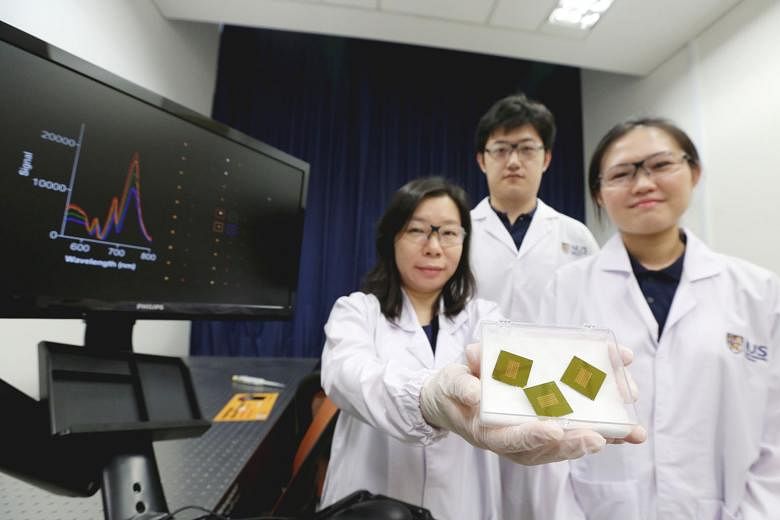A new blood test for diagnosing Alzheimer's disease could be available within the next five years.
Researchers from the National University of Singapore (NUS) have come up with a test known as Amplified Plasmonic Exosome (Apex) that can detect a molecule that indicates early-stage Alzheimer's disease, the most common cause of severe dementia.
The test, the first of its kind in the world, could be used to diagnose the disease before clinical symptoms appear, said Assistant Professor Shao Huilin of the NUS Institute for Health Innovation & Technology (NUS iHealthtech).
Prof Shao, who led the two-year study, said: "There is no good blood-based method to effectively screen and monitor Alzheimer's disease. New tests that are under investigation have either poor accuracy or low sensitivity."
Alzheimer's disease is usually detected at a late stage. Early detection could improve the success rate of disease-modifying therapies, Prof Shao said, adding: "As blood tests are relatively easy to administer, Apex can also be used to monitor a patient's response to treatment and can be easily scaled up for large cohort clinical validations and drug evaluation."
Up to 60 samples can be tested simultaneously and the results can be available within an hour.
The test works by detecting abnormal levels of a molecule called amyloid beta, which can "clump together" and kill brain cells.
Abnormal levels cause a colour change which can be detected and analysed, said Mr Zhang Yan, a doctoral student at NUS iHealthtech and a member of the research team.
Another doctoral student and team member, Ms Carine Lim, said: "Our study found that the aggregated form of the protein could accurately reveal brain changes and reflect Alzheimer's disease stages."
The blood test costs $30, less than 1 per cent of the price of a positron emission tomography (PET) scan, the current "gold standard" for detecting Alzheimer's disease.
Other alternative forms of detection, such as clinical evaluation and neuropsychological assessments, are subjective and only effective in detecting late-stage Alzheimer's disease, while cerebrospinal fluid tests require invasive and painful lumbar punctures.
The team of 12 researchers conducted a clinical trial involving 84 patients, including those who have been diagnosed with Alzheimer's disease, those with mild cognitive impairment, and a control group comprising healthy individuals and patients diagnosed with other conditions such as vascular dementia.
Vascular dementia is the second-most common form of dementia, after Alzheimer's disease. It results from impaired blood flow to the brain and can be caused by a stroke.
PET scans and the Apex blood test were conducted on all the participants in the trial.
Prof Shao said the results correlated "extremely well" and that the Apex system was able to accurately identify patients with Alzheimer's disease and cognitive impairment.
She added that the test was also able to differentiate those with Alzheimer's disease from healthy individuals and those with other neurodegenerative diseases.
The team is in discussions with potential industry partners to bring the product to the market, she said.


